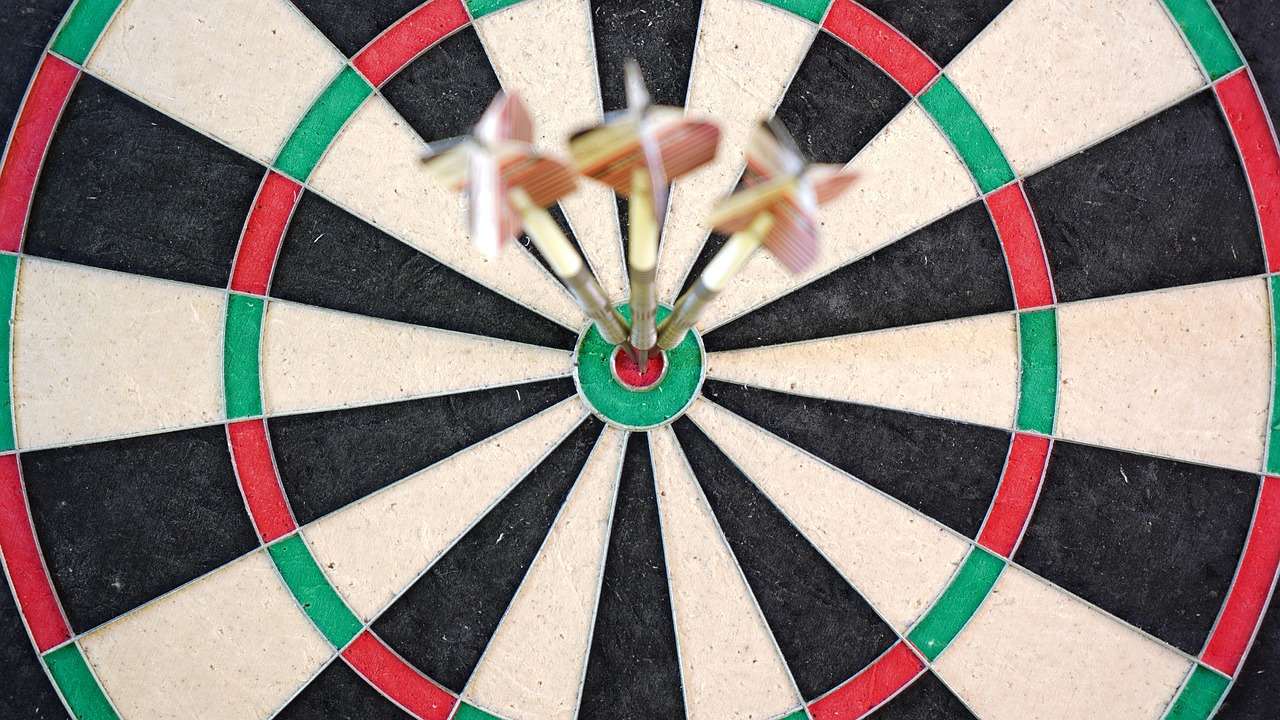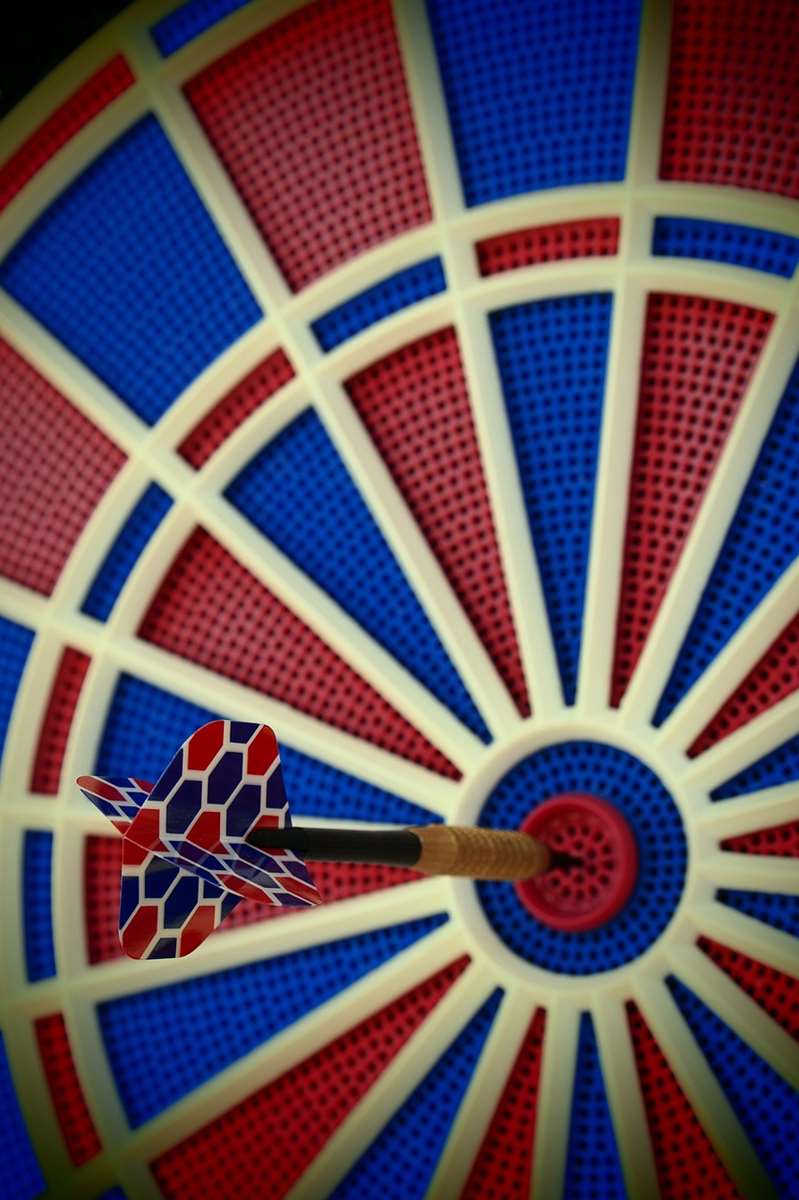Being a great darts night host means more than just having a dartboard; it’s about creating a fun, inclusive, and well-organized experience for everyone. This article will detail the key darts night host responsibilities, ensuring your next event is a bullseye of success!
⚠️ Still Using Pen & Paper (or a Chalkboard)?! ⚠️
Step into the future! The Dart Counter App handles all the scoring, suggests checkouts, and tracks your stats automatically. It's easier than you think!
Try the Smart Dart Counter App FREE!Ready for an upgrade? Click above!
Understanding Your Darts Night Host Responsibilities
The role of a darts night host is multifaceted. You’re not just providing the venue; you’re setting the atmosphere, facilitating games, and ensuring everyone has a good time. From preparing the space to managing the competition, understanding and embracing your darts night host responsibilities is crucial for a successful event. A good host also takes into account different skill levels and creates an environment where everyone feels comfortable participating.

To truly excel, it’s vital to consider the following aspects:
- Preparation: This includes setting up the dartboard, ensuring adequate lighting, and having enough darts for everyone.
- Organization: Managing the order of play, keeping score, and explaining the rules of the game.
- Atmosphere: Creating a fun and welcoming environment for all participants.
- Inclusivity: Making sure everyone feels involved, regardless of their skill level.
- Safety: Ensuring the area is safe for players and spectators.
Setting Up for a Successful Darts Night
Before your guests arrive, a little preparation goes a long way. The first step in your darts night host responsibilities is ensuring the dartboard is correctly mounted. The center of the bullseye should be 5 feet 8 inches (1.73 meters) from the floor. The throwing distance, or oche, should be 7 feet 9 1/4 inches (2.37 meters) from the face of the dartboard.
Essential Preparations
- Dartboard Mounting: Use a secure mounting bracket to ensure the board doesn’t wobble.
- Oche Placement: Clearly mark the throwing line with tape or a raised marker.
- Lighting: Adequate lighting is crucial. Consider a dedicated dartboard light or ensure the area is well-lit.
- Dart Availability: Have enough darts for everyone to use. A variety of dart weights and styles can cater to different preferences.
- Scoreboard: Provide a clear and easy-to-use scoreboard, whether it’s a traditional chalkboard or a digital app.
- Safety Zone: Ensure there is ample space around the dartboard to prevent accidents.
Remember to check the condition of your darts as well. Are the flights in good shape? Are the points sharp? Having a dart sharpener and extra flights on hand is a mark of a prepared darts night host. You might even consider exploring some Darts Variants Fun Games to add some variety!

Creating a Welcoming and Inclusive Atmosphere
Beyond the technical aspects, one of the most important darts night host responsibilities is creating a fun and welcoming atmosphere. This means making everyone feel comfortable, regardless of their skill level. Consider having some background music playing, but not so loud that it interferes with conversation. Provide snacks and drinks to keep your guests fueled and hydrated.
Encourage friendly competition and avoid putting too much pressure on players. Remember, it’s all about having fun! If you have some players who are new to the game, take the time to explain the rules and offer some basic tips. This can make a big difference in their enjoyment of the evening. Maybe delve into the history of darts games uk to share some interesting facts.
Managing the Games and Keeping Score
A key part of your darts night host responsibilities involves managing the games and keeping score. Determine which games you’ll be playing in advance. 501 is the most common, but you could also try around the clock, cricket, or even some forgotten pub dart games to keep things interesting.
Clearly explain the rules of each game before you start. Keep track of the order of play and make sure everyone knows when it’s their turn. Accuracy in scoring is vital. Assign a scorekeeper or use a digital scoring app to avoid disputes. If you’re using a chalkboard, ensure it’s easily visible to everyone.

Promoting Fair Play and Sportsmanship
As the darts night host, you are responsible for promoting fair play and good sportsmanship. Encourage players to be respectful of each other and to avoid distracting their opponents. Remind everyone that it’s just a game and that the main goal is to have fun. Address any disputes calmly and fairly. Celebrate good throws and encourage players to congratulate each other on their successes.
Tips for Encouraging Sportsmanship:
- Lead by example: Be a gracious host and demonstrate good sportsmanship yourself.
- Establish clear rules: Make sure everyone understands the rules of the game and the expectations for behavior.
- Address issues promptly: Don’t let minor disputes escalate into major conflicts.
- Focus on fun: Remind everyone that the primary goal is to have a good time.
- Offer encouragement: Celebrate good throws and encourage players to support each other.
Handling Different Skill Levels
One of the trickiest aspects of darts night host responsibilities is catering to players of different skill levels. If you have a wide range of abilities, consider organizing different games or handicapping matches to level the playing field. You could also pair up experienced players with beginners to provide guidance and support. Be sensitive to the needs of less experienced players and avoid putting them in situations where they feel uncomfortable or embarrassed.
Consider running some friendly games of doubles. This allows experienced players to mentor newer ones, and it adds a social element to the competition. The ultimate goal is to make everyone feel included and valued, regardless of their skill level.

Ensuring Safety During Darts Night
Safety is paramount. The final piece of your darts night host responsibilities is to ensure a safe environment for all. Make sure the area around the dartboard is clear of obstacles and that spectators are kept at a safe distance. Establish clear rules about throwing and retrieving darts to prevent accidents. Provide dart mats to protect the floor from damage and to reduce the risk of slips and falls. Remind players to be mindful of their surroundings and to avoid throwing darts when others are nearby. Also be prepared to handle potential injuries, having a small first aid kit on hand is always a good idea. Perhaps knowing the rules from old dart games rules will help keep everyone safe, too.
Beyond the Basics: Going the Extra Mile
To truly shine as a darts night host, consider going the extra mile. You could create a themed darts night, with decorations and costumes. Offer prizes for the winners of each game. Prepare a signature cocktail or snack. Take photos and videos to capture the memories. These little touches can elevate your darts night from a simple gathering to a truly memorable event.

By taking these steps, your event will be remembered for its fun, friendly atmosphere, and well-organized competition. And who knows, maybe you’ll even inspire some new dart players along the way!
Conclusion
Mastering darts night host responsibilities involves careful planning, thoughtful execution, and a focus on creating a fun and inclusive environment. From setting up the dartboard correctly and managing the games to promoting fair play and ensuring safety, every detail contributes to a successful event. Remember, the goal is to create a memorable experience for your guests, regardless of their skill level. Embrace these tips, and you’ll be well on your way to becoming the ultimate darts night host. So, gather your friends, sharpen your darts, and get ready to host a night they won’t forget! Now it’s time to start planning your next darts night – what are you waiting for?
Hi, I’m Dieter, and I created Dartcounter (Dartcounterapp.com). My motivation wasn’t being a darts expert – quite the opposite! When I first started playing, I loved the game but found keeping accurate scores and tracking stats difficult and distracting.
I figured I couldn’t be the only one struggling with this. So, I decided to build a solution: an easy-to-use application that everyone, no matter their experience level, could use to manage scoring effortlessly.
My goal for Dartcounter was simple: let the app handle the numbers – the scoring, the averages, the stats, even checkout suggestions – so players could focus purely on their throw and enjoying the game. It began as a way to solve my own beginner’s problem, and I’m thrilled it has grown into a helpful tool for the wider darts community.